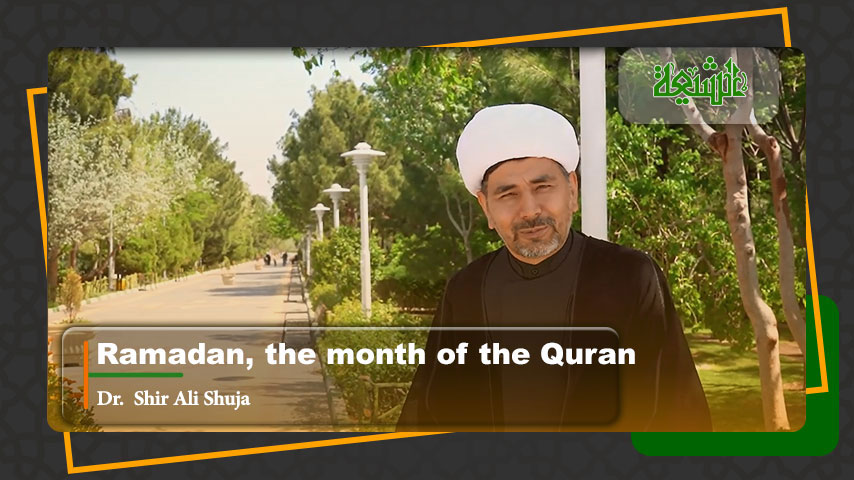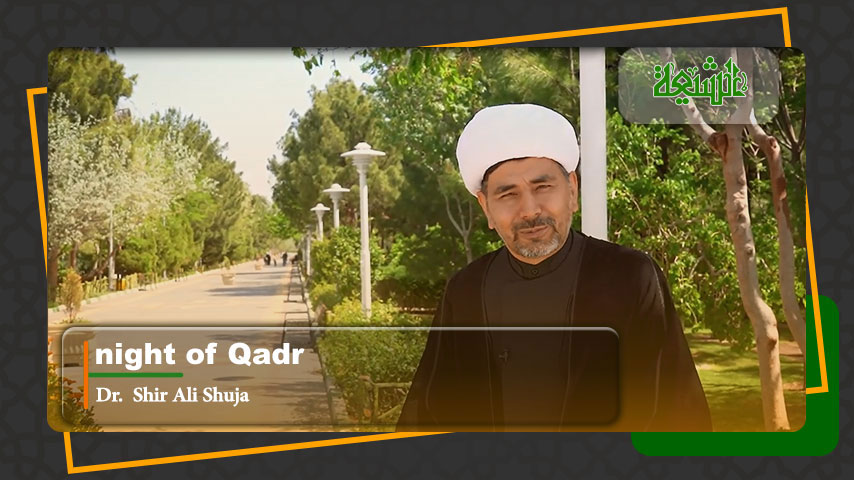In this part of the article titled “Nahj al-Balaghah and Its Spiritual Teachings”, we shall focus on “Zuhd” (abstention) as one of the important themes of Nahj al-Balaghah here.
Islamic Zuhd and Christian Asceticism
In the last section, we said that zuhd, as defined by the Nahj al-balaghah, is a spiritual state that makes the zahid, on account of his spiritual and other worldly aspirations, indifferent towards the manifestations of material existence. This indifference is not confined to his heart, intellect, and feelings and is not limited to his conscience. It also manifests itself on the practical level of life in the form of simplicity, contentment, and abstention from hedonistic urges and love of luxuries.
A life of zuhd not only implies that a man should be free from attachment to the material aspects of life, but he should also practically abstain from indulgence in pleasures. The zuhhad are those who in life are satisfied with the barest material necessities. Imam Ali (a) was a zahid, who was not only emotionally detached from the world but also indifferent to its pleasures and enjoyments. In other words, he had ‘renounced’ the ‘world’.
Two Questions
Here, inevitably, two questions shall arise in the reader’s mind. Firstly, as we know, Islam has opposed monasticism considering it to be an innovation of Christian priests and monks. The Prophet (‘s) has stated in unequivocal terms that
There is no monasticism (rahbaniyyah) in Islam. Once when the Prophet (‘s) was informed that some of his Companions had retired into seclusion renouncing everything and devoting all their time to worship and prayer in seclusion, he became very indignant. He told them: “I, who am your prophet, am not such”. In this way, the Prophet (‘s) made them understand that Islam is a religion of life and society, not a monastic faith. Moreover, the comprehensive and multifaceted teachings of Islam in social, economic, political and moral spheres are based on reverence for life, not on its renunciation.
Apart from this, monasticism and renunciation of life are incompatible with the worldview of Islam and its optimistic outlook on the universe and creation. Unlike some other philosophies and creeds, Islam does not view the world and life in society with pessimism. It does not divide all creation into ugly and beautiful, black and white, good and evil, proper and improper, right and wrong. Now the second question may be stated in these words: “Aside from the fact that asceticism is the same as monasticism-which are both incompatible with the Islamic spirit-what is the philosophy underlying zuhd?
Moreover, why should men be urged to practice zuhd? Why should man, seeing the limitless bounties of God and good things of life around him, be called upon to pass by the side of this delightful stream indifferently and without so much as wetting his feet? Are the ascetic teachings found in Islam, on this basis, later innovations (bid’ah) introduced into Islam from other creeds like Christianity and Buddhism? And if this is correct, how are we to explain and interpret the teachings of the Nahj al-balaghah? How can we explain the indubitable details known about the Prophet’s life and that of Imam Ali (a)?
The answer is that Islamic zuhd is different from Christian asceticism or monasticism. Asceticism is a retreat from people and society and seclusion for the purpose of worship. According to it, the life and works of the world are separate from the works of the Here-after and the one is alien to the other. One should, of necessity, choose either one of the two. One should either devote oneself to worship of God which shall bear fruits in the Hereafter or take up the life of the world and benefit from its immediate pleasures. Accordingly, monasticism is opposed to life and social relationships. It requires withdrawal from people and negation of responsibility and commitment towards them.
On the other hand, zuhd in Islam, though it requires a simple and unaffected lifestyle and is based on abstention from luxuries and love of comforts and pleasures, operates in the very midst of life and social relations and is sociable. It draws inspiration, and proceeds, from the goal of better fulfilment of social responsibilities and duties. The conception of zuhd in Islam is not something that would lead to asceticism, because a sharp distinction between this world and the next is nowhere drawn. From the viewpoint of Islam, this world and the next are not separable, not alien to each other.
The relation of this world to the other is similar to that between the inward and outward sides of a single reality. They are like the warp and woof of a single fabric. They are to each other as the soul to the body. Their relationship can be assumed to be something midway between unity and duality. The works of this world and those of the next are interrelated similarly. Their difference is that of quality, without being essential. Accordingly, that which is harmful to the other world is also to one’s detriment in the present world, and everything which is beneficial for the summum bonum of life in this world is also beneficial for life in the next world.
Therefore, if a certain work which is in accordance with the higher interests of life in this world is performed with motives that are devoid of the higher, supra-material, and transcendental elements, that work would be considered totally this-worldly and would not, as the Quran tells us, elevate man in his ascent towards God. However, if a work or action is motivated by sublime aims and intentions and is executed with a higher vision that transcends the narrow limits of worldly life, the same work and action are considered ‘other-worldly.’ The Islamic zuhd, as we said, is grounded in the very context and stream of life and gives a peculiar quality to living by emphasizing certain values in life. As affirmed by the Islamic texts, zuhd in Islam is based on three essential principles of the Islamic world outlook.
The Three Essential Principles
1. Enjoyments derived from the physical, material, and natural means of life are not sufficient for man’s happiness and felicity. A series of spiritual needs are inbuilt into human nature, without whose satisfaction the enjoyment provided by material means of life is not enough to make a man truly happy.
2. The individual’s felicity and happiness are not separable from that of society. Since man is emotionally bound to his society, and carries within him a sense of responsibility towards it, his individual happiness cannot be independent of the prosperity and peace of his fellow men.
3. The soul, despite its fusion and a kind of unity with the body, has a reality of its own. It is a principle in addition to the body which constitutes another principle in itself. The soul is an independent source of pleasure and pain. Like the body, or rather even more than it, it stands in need of nourishment, training, growth, and development. The soul, however, cannot dispense with the health and vigour of the body. At the same time, it is undeniable that total indulgence in physical pleasures and complete immersion into the delights of sensual experiences do not leave any opportunity for realizing the soul’s unlimited possibilities. Therefore, there exists a kind of incompatibility between physical enjoyment and spiritual satisfaction. This is especially true if the attention and attachment to physical needs were carried to the very extreme of total immersion and absorption.
It is not true that all sorrow and grief are related to the soul and that all pleasures are derived from the body. In fact, spiritual pleasures are much more profound, purer, and more lasting than bodily pleasures. To sum up, one-sided attention to physical pleasures and material enjoyment finally results in compromising total human happiness. Therefore, if we want to make our lives happy, rich, pure, majestic, attractive, and beautiful, we cannot afford to ignore the spiritual aspects of our being.
With due attention to these principles, the meaning of zuhd in Islam becomes clear. The knowledge of these principles allows us to understand why Islam rejects monasticism but welcomes a form of asceticism which is rooted in the very heart of life and in the context of social existence. We shall explain the meaning of zuhd in Islamic texts on the basis of these three principles.
Continue in the next article: ( Nahj al-Balaghah and Its Spiritual Teachings (6) )
NOTE:
_____________________________________
1. Bihar al Anwar, vol. XV Bab al nahy an al rahbaniyyah wa al siyahah. Rumi in the sixth part of his Mathnawi refers to this tradition in the story of the bird and the hunter.
















